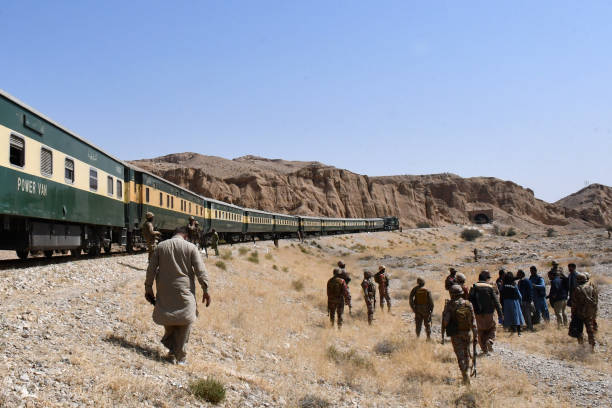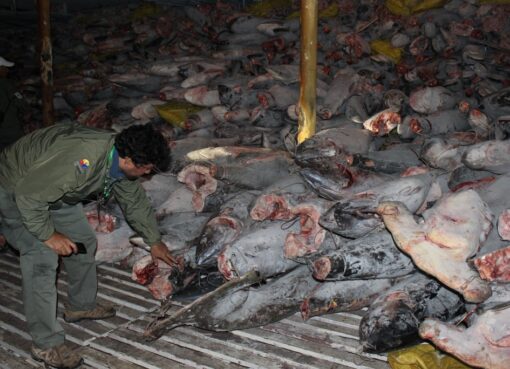Pakistan is at the `Cusp of Implosion’ as its federal units threaten to break away while the monster of terrorism created by its all powerful Army is about to devour itself
*Prasad Nallapati
It is unfortunate that hundreds of innocent lives are lost as Pakistan is staring at crisis after crisis, which are mostly self-inflicted.
The Jaffar Express train was attacked in central Balochistan last Tuesday by militants of the banned Baloch Liberation Army (BLA) and 214 hostages were taken after releasing women and children. At least 100 of them were Frontier Corps (FC) personnel.
The BLA claimed to have executed all hostages, including soldiers, after the Pakistan Army launched an operation to release them. The army had initially said that only 5 civilians were killed and others were rescued while eliminating all the 33 gunmen. It has now admitted that 23 FC soldiers and 8 civilians were killed.
The Frontier Corps is a paramilitary force operating in Balochistan and Khyber Pakhtunkhwa provinces bordering Iran and Afghanistan.
The Baloch militants also raided a police station in Mastung the same evening as the train hijacking and escaped with arms and ammunition, while the residents hailing them as heroes.
The Majeed Brigade of the BLA struck again on Sunday targeting a military convoy of eight buses in Balochistan in what appears to be a suicide mission. Pictures released by them showed at least one bus was completely destroyed while another was surrounded by the gunmen and eliminated the inmates.
The militants claimed killing 90 FC personnel while Pakistan Army discounted the figure saying only 5 soldiers were martyred.
The Army figures cannot be trusted as they are known to keep its casualties under wrap to protect its image. Islamabad further claims that the Baloch militants were in contact with their `handlers’ in Afghanistan and accused India of sponsoring the `terrorist’ attacks. It’s the common refrain by the Army for every violent act in the country.
Baloch Movement Learnt Tricks From Army To Transform Itself
The Balochistan movement is no more a local phenomenon attacking occasional soft targets. Thanks to Pakistan Army’s machinations, it has now acquired a larger regional dimension permeating the Iranian and Afghan borders, gaining new partners and hide outs in the process.
It’s a parody that the Baloch groups could acquire a `strategic depth’ in the neighboring countries which Pakistan Army had long struggled to achieve for itself in its fight against India without success.
Pakistan’s air strikes on targets inside Afghanistan in December last killing over 46 people was perhaps the last straw that pushed the Taliban regime to retaliate. In the absence of any air capabilities, the only way the Taliban knows to do so is to open its territory for Baloch insurgent groups fighting the Pakistan Army, though it is not a jihadi outfit.
Tehran has also long been unhappy with Pakistan for allowing sanctuaries to Jaish al-Adl, a Sunni militant group attacking Iranian forces and other Shia targets. Iran launched missile and drone attacks in January last year on its hideouts in Pakistan attracting retaliatory strikes from Rawalpindi.
The BLA and other Baloch insurgents, therefore, get free movement across the borders facilitating their attacks on Pakistani forces and Chinese workers who are seen as exploiting the country’s economic resources.
They are increasingly able to attack hard military targets even in their garrisons, most of which do not get reported due to media blackouts imposed by the Army.
Popular Support to Baloch Insurgency
Baloch demands have long been simple and genuine. They wanted them to be treated equally and with respect by the Punjabi-dominated ruling `clique’. It is the largest province of the federation with vast resources of minerals and strategic Gwadar port. The backward state does not get its fair share of these resources, which they accuse Pakistani establishment of giving away cheaply to China for the latter’s military and economic aid.
The long history of enforced disappearances of Baloch youth by the Pakistani army has been an eye sore that has taken them the route of armed struggle.
The softer side of the Movement was piloted by young Baloch women, who formed the Baloch Yakjehti Committee, led by Mahrang Baloch and Sammi Baloch.
It is not just a women’s resistance, but has grown to become a bigger movement against forced abductions. They have come of age by their protest march in 2023 which brought them international attention.
According to Human Right Watch, there have been 8,463 case of missing persons between 2011 and January 2024, and at least 10,078 enforced disappearances were recorded by the Pakistan Commission of Inquiry on Enforced Disappearances. Of them, 3,485 took place in the province of Khyber Pakhtunkhwa, and 2,752 in Balochistan.
Many of them ended up in mass graves or their beheaded bodies were strewn at the entrance of the villages as a warning against joining protest movement.
The Human Rights Council of Balochistan itself listed 144 cases of enforced disappearances, and 46 killings just in last month. The Frontier Corps, which is responsible for the abductions, has become such a hated organization that their personnel have been targets of Baloch militants.
Mahrang Baloch herself was abducted in December last under mysterious circumstances which sparked outrage in and out of Balochistan, which may partly explain the latest escalation of militancy. The courageous young Baloch championed issues of justice, education, and human rights for Baluchis.
Pakistan at `Cusp of Implosion’
Pakistan is at the `Cusp of Implosion’ as its federal units threaten to break away while the monster of terrorism created by its all powerful Army is about to devour itself.
There are at least 80 terrorist/extremist groups in Pakistan, many of which were either directly created by the Army or has its backing, and 45 of them are currently active.
These groups include those created to target India, like Lashkar-e-Taiba (LeT), Jaish-e-Mohammad (JeM) etc., which continue to operate despite being on the banned lists of Pakistan itself, the US and the United Nations. They keep changing the names hoping to fool the world of their existence.
After the 2019 revocation of Article 270 of the Indian Constitution, which gave special status to Jammu and Kashmir, new organizations were formed, `The Resistance Front’ (TRF) with LeT leaders forming the core of it, and `People’s Anti-Fascist Front’ as an offshoot of the JeM.
While these India-focused terror groups continue to follow the diktats of the Army, the latter has lost much of its `aura’ with many of its own officers questioning top Generals’ ability to lead. Dismissal of the Imran Khan’s government created fissures in the Army which are unlikely to be fixed. The Social media is replete with stories exposing their misdemeanors.
The Army also lost control of many of the jihadi groups that it had earlier supported, like the TTP and a score of others, which despise its high-handedness and are increasingly targeting the soldiers. New groups are being formed, a technique learnt from the Army, to camouflage identity of their leadership.
A Urdu/Pashto video released recently announced formation of a new militant group, “Harakat inqilah Islami Pakistan (IIP),” declaring Pakistan as its area of operation and identifying the Pakistani military forces as its primary target. Leader of the group, identified as Ghazi Shahabuddin, standing along with several masked associates, expressed its intention to collaborate with other militant groups in Pakistan to achieve its declared objectives.
The time perhaps has come for the Pakistani people to ponder over what went wrong since its bloody creation in 1947 and establish a new polity that is more responsible for the welfare of the people and development of the country. They cannot afford to indulge in jihadi nonsense and create enemies among the neighbours. They must act fast before the Army usurps power once again.
(*Prasad Nallapati is President of the Hyderabad-based think-tank, “Deccan Council for Strategic Initiatives”, and former Additional Secretary to the Govt of India)




